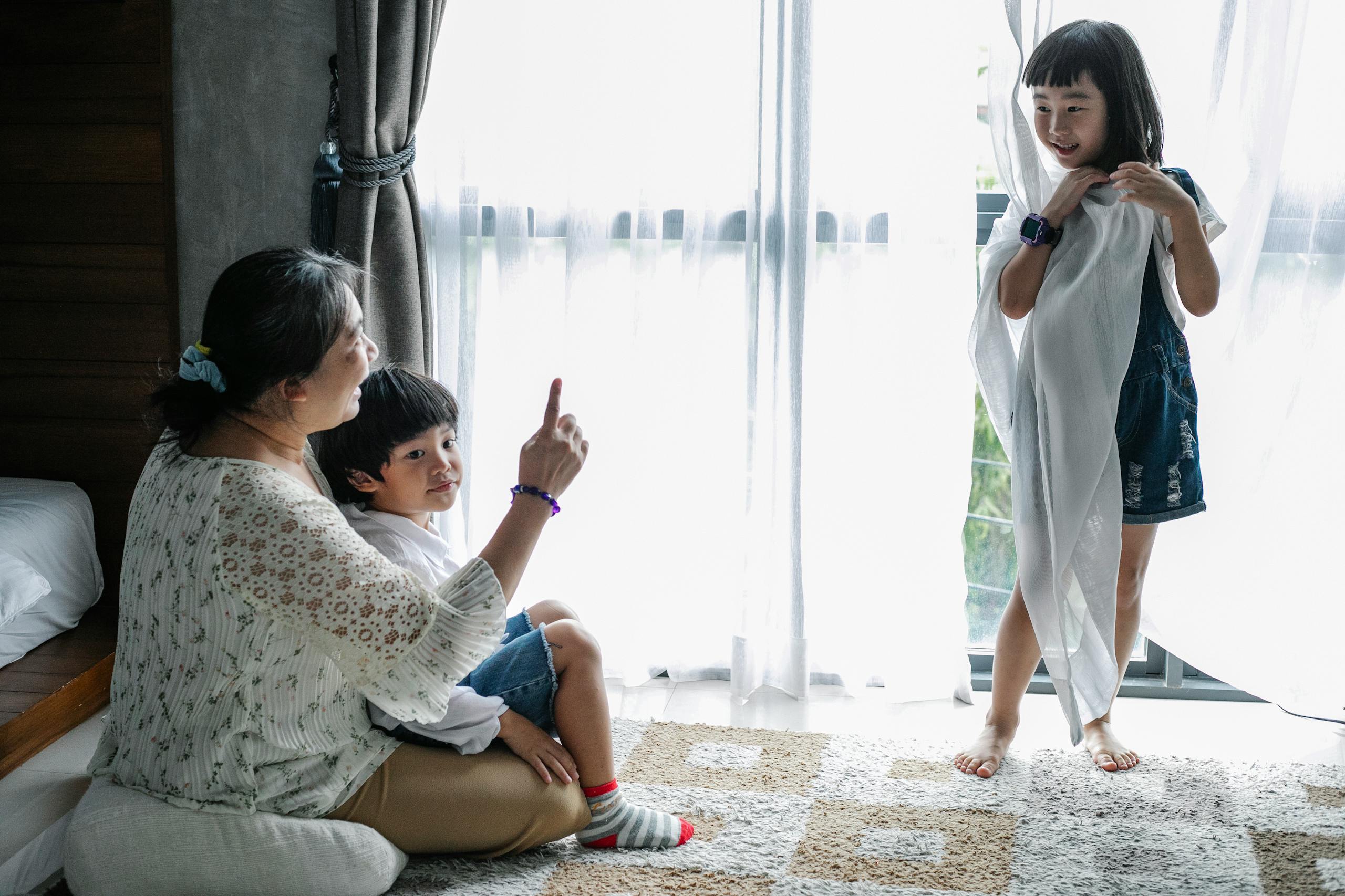Utak Talangka or Talangkang Pag-iisip: What is Crab Mentality?
Crab mentality is more destructive than we think and influences us more than we realize.
When we look at social media, there will always be a variety of comments from well-wishers to snide remarks. However, in Philippine culture, we notice that praises for achievements are often rare. Some say these compliments and praises without really meaning them. Whereas, others are quick to give credit to anyone other than the person who actually accomplished it. The usual, “Oh, it’s because they’re rich” / “Mayaman kasi ang mga yan,” or “Thank God He made it possible for you” / “Magpasalamat ka sa Diyos.” when delivered poorly and consistently, reveals a form of crab mentality that has existed not just in society but in Filipino families as well.
What is Crab Mentality?
Crab mentality, or utak talangka or talakang pag-iisip in Tagalog, is a pattern of thinking where a person is “often envious and selfish about a person’s success” (Aydin and Oğuzhan, 2019). This kind of thinking is also seen to be akin to the saying “If I can’t have it, neither can you” — a saying that Antuan Simmons (2014) wrote in his book of poetry, Crab Syndrome. It’s a common trend among Filipinos. We often see it or experience it when we want a better future but struggle to do so because of those who are trying to ride on our successes. Or those who make achievements and successes look like nothing by insulting someone’s character instead or, those who attribute the person’s success to anything but that person’s efforts.
But why would Filipinos do that if they’re all about pakikipagkapwa and hiya?
Pakikipagkapwa and Hiya: Passion vs. Virtue
Filipinos place a hefty value on togetherness and shame (Bankston III & Hidalgo, 2006). Togetherness, in the Philippines, is a virtue where “Filipinos see each other as an equal/” Whereas, Filipinos see shame as an emotion they want to help others avoid. As a virtue and in an ideal world, both these appear to be helpful and positive in nature. However, it may be difficult for many Filipinos to distinguish the difference between passion and virtue. Passion can feel just as strong and can make Filipinos engage in behaviors that are destructive in nature. Lasquety-Reyes (2016), quoting a study by Bulatao (1964), offered an example of how hiya as a passion can be destructive:
Two men are drinking tuba [local fermented wine] in a sari-sari store. One of them jokingly
Lasquety-Reyes, In Defense of Hiya as a Filipino Virtue, 2016
pulls up the back of the other one’s undershirt and rubs the back with his palm. The other
pulls out a knife and kills him. Later, the lawyer in court justifies the killing by saying,
‘Napahiyâ siya e [‘He was shamed, that’s why’]’. (Bulatao 1964, p. 424–425)
And in the context of crab mentality, he points out that Filipinos never considered themselves victims of “crab mentality” and that, it can be due to Western influence for those who believe it exists. Rather, Filipinos see it as a form of making sure the group progresses together as a whole. There is no such thing as an individual success because there is a belief that each action is influenced and influences another thing.

Understanding Crab Mentality in the Philippines and Filipino Families
But what studies don’t often recognize is that some may see it differently: an individual’s success actually shames other people because it makes them see their own shortcomings. Success, especially one we achieved by doing something simple or just by deciding something — something Filipinos also have difficulty with, unfortunately — may make one feel “stupid” or face the question of, “I could have done that, too! Why didn’t I?”
In Filipino families, we see it more in extended family members than in immediate ones. Parents and siblings are aware of the effort an individual puts into their work and goals. But sometimes, crab mentality may appear in their responses with backhanded compliments such as “You got that from me!” / “Nagmana ka talaga sa akin!” There is a collective pride, yes. But if delivered consistently in a poor manner, it appears as if they are “robbing” the credit and discrediting the individual’s efforts, leading to the toxicity many of the younger generations are calling out.
Examples of Crab Mentality in the Philippines
While it’s good to contribute to improving the image of the group, nothing justifies making someone feel bad for achieving something. Unfortunately, Filipinos consider some of these behaviors normal which makes them unaware of the shame they inflict on their fellow Filipinos, something if they practiced pakikipagkapwa and hiya as a virtue they would have noticed:
- Blaming others or saying that they can’t do it (even though they could). In other cultures, they call this Weaponized Incompetence. Filipinos often say, “Di ko kaya yan kasi!” or “Si ganito yung may kaya!” It can place unnecessary pressure and shame others for having the capability of doing so. While we do need to consider external factors (i.e. financial struggles, health struggles, etc.), there should be a distinction between things that we can deal with and those that we cannot control.
- Attributing success to anyone or anything else but the individual. Filipinos do this to both themselves and other people. For other people, Filipinos are quick to point out that it was because “they knew someone” or because their family is rich and valued highly in society. While we should be aware of our privileges and how that helps, it doesn’t mean disregarding people’s efforts. It makes it appear that success magically dropped from the sky which we know will never be the case.
- Claiming credit when someone speaks about their success. The most common one among Filipinos. Family members are quick to claim the credit when they hear one of their members talking about their success. “It’s because I helped!” / “Dahil tinulungan kita!” — when badly timed and delivered, it looks as if one is jealous of a person’s success. Worse, it adds the additional layer of utang ng loob, which we often act in passion but defend as a virtue.
All these behaviors can reflect a form of crab mentality, hurting a child’s or even a parent’s self-esteem.
While it’s normal to be jealous, it’s not normal to always act on it.
While Envy is one of the capital sins in Christianity, we need to accept that we do feel it. But that doesn’t mean, we should act upon it. Sometimes, we feel that another person’s success makes us small, unlikeable, and ostracized. However, that’s if and only if, we all define our goals the same way which is constantly receiving a cheque with multiple zeros in them. But not all Filipinos have the same motivation. Some live for the joy of helping people, especially when those people will do what it takes to help themselves. Crab mentality is one behavior we don’t need. Caring for each other doesn’t mean pulling each other down.
References
AYDIN, G. Z., & Oğuzhan, G. (2019). The “crabs in a bucket” mentality in healthcare personnel: A phenomenological study. Hitit Üniversitesi Sosyal Bilimler Enstitüsü Dergisi, 12(2), 618-630.
Bankston Iii, C. L., & Hidalgo, D. A. (2006). Respect in Southeast Asian American children and adolescents: Cultural and contextual influences. New Directions for Child and Adolescent Development, 2006(114), 25-38.
Enriquez, V. G. (2002). Filipino psychology in the Third World. Philippine Journal of Psychology, 35(1).
Lasquety-Reyes, J. (2016). In defense of hiya as a Filipino virtue. Asian philosophy, 26(1), 66-78.
Simmons, A. (2014). The crab syndrome. Antuan Simmons.
Snell, A. (2017). Forgotten Voices: A Critical Literature Review of the Impact of Intergenerational Trauma Transmissions within the Filipino Psyche (Doctoral dissertation, The Chicago School of Professional Psychology).
More on improving the modern-day Filipino family:
How Utang ng Loob Made Filipino Families Toxic
‘Respect Begets Respect’: The New Way Of Teaching Kids
“Tigas ng Ulo Mo!”: How To Parent Stubborn Kids Without Breaking Them









